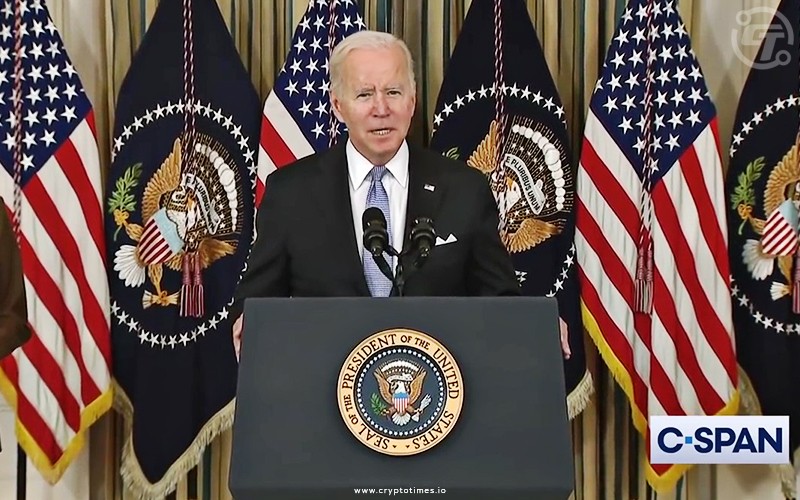In Brief:
- A bipartisan infrastructure proposal worth $1.2 trillion has been passed by Congress.
- The bill was passed by Congress with a final vote of 228–20
- For lawmakers, success on Build Back Better would be a pyrrhic victory.
Congress has passed a $1.2 trillion bipartisan infrastructure Bill after months of internal negotiations and deliberate differences among Democrats.
After passing with a vote of 228–206 on Friday, the $1.2 trillion infrastructure bill, which also expands the definition of a broker, currently awaits President Joe Biden’s signature.
After a procedural vote to send an even larger “Build Back Better Act” social welfare bill to the Senate, the House of Representatives was expected to rubber stamp the bill, passing legislation with a combined price tag of $3 trillion on what could be the most expensive day in the lower chamber’s history.
During a frenzy of 11th-hour negotiations in Congress on Thursday, Biden spokeswoman Karine Jean-Pierre told reporters “poll after poll shows us that the components of the bipartisan infrastructure deal and the Build Back Better framework are very popular.” She further added “American families want historic investments in infrastructure… in competitiveness, and addressing the climate crisis. This is something that they want to see happen.”
The infrastructure deal’s ultimate approval would be a huge win for Biden, a former senator who prides himself on his ability to reach across the aisle but has seen his approval numbers plummet, owing in part to his stalled domestic agenda.
The decision brings to a close months of heated discussions on Capitol Hill, which began in August when the Senate adopted the bill, giving it rare bipartisan backing in Washington’s fractured political climate.
Democrats in Congress had wanted to get the House and Senate together by the summer, but the process was hindered by divisions over the size and scope of the $1.75 trillion Build Back Better Act.
The White House claims that the infrastructure package will create thousands of high-paying jobs for individuals without college degrees by funding work on roads, bridges, and ports, as well as high-speed internet.
The scheme:
The plan calls for $550 billion in new federal expenditure on transportation infrastructure, as well as broadband expansion, clean water initiatives, EV charging stations, and other climate-related initiatives.
The entire price tag, which is equal to Spain’s GDP in 2020, is based on other public money that has already been appropriated.
With the support of a third of Republican Senators, it cleared the Senate with a simple majority of 69 votes to 30.
The make-or-break vote will be forwarded to Joe Biden’s desk to be signed into law if the House rubber stamps it. House leadership has spent weeks attempting to reconcile the Democratic majority’s divisions.
Over the next eight years, Biden proposed investing $2 trillion on infrastructure, including investments in climate change mitigation, child care, schools, and social services, among other things.
Republicans in the Senate, on the other hand, were certain that only traditional infrastructure, such as roads and airports, as well as internet upgrades, should be included.
The Build Back Better package, which includes large expenditures in health, education, combating climate change, and extending social welfare programs, is currently being negotiated by congressional Democrats.
Friday’s move is a departure from House progressives’ long-held policy of passing infrastructure only after gaining assurances of Senate support for Build Back Better.
Despite bipartisan backing in the Senate, most House Republicans are anticipated to oppose the infrastructure bill after former President Donald Trump promised retaliation for aiding Biden’s political victory.
However, success on Build Back Better would be a Pyrrhic victory for lawmakers who fear that the plan will be transformed beyond recognition in the Senate by moderates such as West Virginia’s Joe Manchin, who is still resisting a deal.
Earlier this year, the US Senate passed HR3684, the most controversial infrastructure bill, to the House of Representatives.






